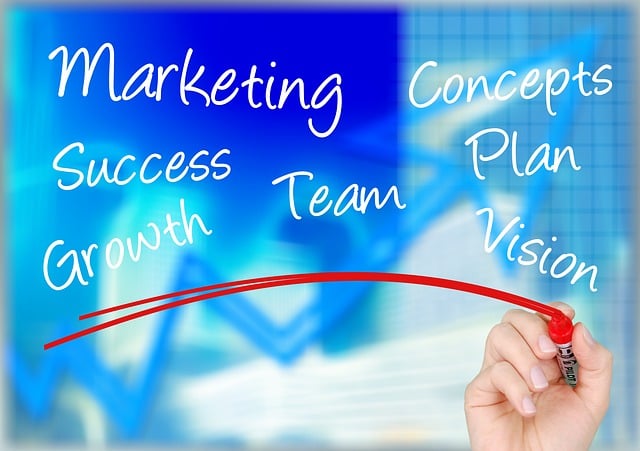AI kitchen automation for chefs is revolutionizing sales forecasting in dynamic business landscapes by leveraging advanced algorithms to predict market trends, optimize resources, and enhance efficiency. Through learning from historical data and real-time inputs, AI provides intuitive insights into customer behavior, market fluctuations, and seasonal trends, empowering strategic decision-making that drives growth. This technology allows chefs to focus on creativity while automating tasks like inventory management and recipe optimization, leading to cost savings, improved accuracy, and maximized profitability for businesses. Implementing AI sales forecasting solutions involves defining goals, integrating data, selecting suitable models, training, testing, and integrating the solution into existing processes via dashboards, providing real-time insights to sales teams.
In today’s data-driven landscape, AI business sales forecasting solutions are revolutionizing how companies predict and optimize their revenue streams. This article delves into the transformative power of artificial intelligence in sales forecasting, highlighting its role in enhancing accuracy and efficiency. We explore the benefits of AI kitchen automation specifically for chefs, demonstrating how intelligent systems streamline processes and improve productivity. Additionally, a step-by-step guide to implementing these solutions provides valuable insights for businesses looking to harness the potential of AI in their sales strategies.
- Understanding AI's Role in Business Sales Forecasting
- The Benefits of AI Kitchen Automation for Chefs and Businesses
- Implementing AI Sales Forecasting Solutions: A Step-by-Step Guide
Understanding AI's Role in Business Sales Forecasting

In the dynamic landscape of business, sales forecasting is a crucible that shapes strategic decisions and drives growth. Artificial Intelligence (AI) has emerged as a game-changer in this domain, revolutionizing how companies navigate their sales trajectories. By leveraging AI kitchen automation for chefs, businesses can now harness the power of advanced algorithms to predict market trends, optimize resources, and enhance overall efficiency.
AI’s role extends beyond mere data analysis; it enables intuitive insights by learning from historical patterns and real-time inputs. This capability is particularly beneficial in sales forecasting, where accuracy is paramount. From automating routine tasks to uncovering complex correlations, AI kitchen automation for chefs facilitates a more nuanced understanding of customer behavior, market fluctuations, and seasonal trends, ultimately empowering businesses to make informed decisions with confidence.
The Benefits of AI Kitchen Automation for Chefs and Businesses

AI kitchen automation is transforming the culinary landscape, offering immense benefits for both chefs and businesses. By leveraging advanced algorithms, these automated systems streamline various tasks in the kitchen, from inventory management to recipe optimization and precise temperature control. Chefs can focus on creating dishes with enhanced efficiency, as repetitive tasks are handled automatically, allowing them to dedicate more time to innovation and menu development.
For businesses, AI kitchen automation translates into significant cost savings and improved operational accuracy. Automated systems reduce human error in food preparation, ensuring consistency in taste and quality. Additionally, they optimize resource utilization by accurately predicting ingredient needs based on historical data and real-time sales forecasting, minimizing waste and maximizing profitability.
Implementing AI Sales Forecasting Solutions: A Step-by-Step Guide

Implementing AI sales forecasting solutions involves a strategic, structured approach. Firstly, define your sales goals and identify key metrics to be forecast. This could include revenue targets, customer acquisition rates, or product category performance. Next, gather and prepare historical sales data, ensuring it’s clean, accurate, and comprehensive. This might require integrating various data sources from CRM systems to financial databases.
Once your data is ready, select an AI model suitable for time-series forecasting, such as those based on recurrent neural networks (RNNs) or transformer architectures. Train the model using prepared datasets, fine-tuning hyperparameters for optimal performance. After training, test and validate the model rigorously. This involves comparing predictions against actual sales data to ensure accuracy and reliability. Finally, integrate the AI forecasting solution into your existing business processes, providing insights to sales teams in real time through dashboards or reports, enhancing decision-making capabilities akin to how AI kitchen automation streamlines a chef’s tasks with precision and efficiency.
AI is transforming business sales forecasting, offering unprecedented accuracy and insights. By automating repetitive tasks like data analysis, AI kitchen automation for chefs can focus on creativity. Implementing AI sales forecasting solutions follows a structured guide, from data preparation to model training and deployment, ultimately enhancing decision-making and driving growth. Embrace these advancements to stay competitive in today’s market.
